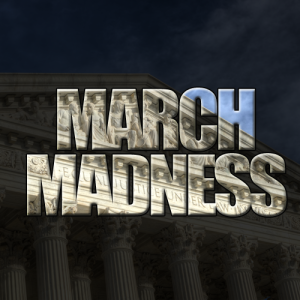Landmark Cases on Supreme Court’s March Docket

The U.S. Supreme Court is scheduled to hear arguments in several potential blockbuster cases this month. Topics on the agenda include restrictions of abortion, the Affordable Care Act’s contraception mandate, and racial gerrymandering. Of course, each of the cases has the potential to end in a 4-4 tie with only eight justices on the bench.
Below is a brief summary of several key cases:
Zubik v. Burwell: The latest challenge to the health care law involves whether religiously-affiliated non-profit organizations must provide free health insurance coverage for birth control for their employees. The specific issue before the justices is whether the contraceptive-coverage mandate and its “accommodation,” which requires religiously affiliated nonprofit corporations that object to birth control coverage to notify their insurance company, third-party benefits administrator, or federal government about their objection, violate the Religious Freedom Restoration Act by forcing religious nonprofits to act in violation of their sincerely held religious beliefs, when the government has not proven that this compulsion is the least restrictive means of advancing any compelling interest.
Whole Woman’s Health v. Hellerstedt: The justices will determine whether abortion restrictions imposes by the State of Texas are unconstitutional under Planned Parenthood of Southeastern Pennsylvania v. Casey. In that case, the Court held that states may not enact “[u]nnecessary health regulations that have the purpose or effect of presenting a substantial obstacle to a woman seeking an abortion.” In the most significant abortion decision in nearly a decade, the Court will consider the following questions: When applying Casey, does a court err by refusing to consider whether and to what extent laws that restrict abortion for the stated purpose of promoting health actually serve the government’s interest in promoting health; Did the Fifth Circuit err in concluding that this standard permits Texas to enforce, in nearly all circumstances, laws that would cause a significant reduction in the availability of abortion services while failing to advance the State’s interest in promoting health-or any other valid interest?
Wittman v. Personhuballah: The federal redistricting case involves whether Virginia’s Third Congressional District is product of racial gerrymandering in violation of Shaw v. Reno, 509 U.S. 630 (1993). The specific questions before the Court include: (1) Whether the court below erred in failing to make the required finding that race rather than politics predominated in District 3, where there is no dispute that politics explains the Enacted Plan; (2) whether the court below erred in relieving plaintiffs of their burden to show an alternative plan that achieves the General Assembly’s political goals, is comparably consistent with traditional districting principles, and brings about greater racial balance than the Enacted Plan; (3) whether, regardless of any other error, the finding of a Shaw violation by the court below was based on clearly erroneous fact-finding; (4) whether the majority erred in holding that the Enacted Plan fails strict scrutiny because it increased District 3’s black voting-age population percentage above the benchmark percentage, when the undisputed evidence establishes that the increase better complies with neutral principles than would reducing the percentage and no racial bloc voting analysis would support a reduction capable of realistically securing Section 5 preclearance. Notably, the Court denied a request to delay using the new map drawn by the lower court in the upcoming congressional elections.
Previous Articles
Supreme Court Rejects Mexico’s Suit Against U.S. Gun Manufacturers
by DONALD SCARINCI on July 8, 2025
In Smith & Wesson Brands v. Estados Unidos Mexicanos, 605 U.S. ____ (2025), the U.S. Supreme Co...
SCOTUS Sides With Employee in Reverse Discrimination Case
by DONALD SCARINCI on July 2, 2025
In Ames v. Ohio Department of Youth Services, 605 U.S. ____ (2025), the U.S. Supreme Court held tha...
Supreme Court Rejects Moment of Threat Doctrine in Deadly Force Case
by DONALD SCARINCI on June 30, 2025
In Barnes v. Felix, 605 U.S. ____ (2025), the U.S. Supreme Court rejected the Fifth Circuit Court o...
The Amendments
-
Amendment1
- Establishment ClauseFree Exercise Clause
- Freedom of Speech
- Freedoms of Press
- Freedom of Assembly, and Petitition
-
Amendment2
- The Right to Bear Arms
-
Amendment4
- Unreasonable Searches and Seizures
-
Amendment5
- Due Process
- Eminent Domain
- Rights of Criminal Defendants
Preamble to the Bill of Rights
Congress of the United States begun and held at the City of New-York, on Wednesday the fourth of March, one thousand seven hundred and eighty nine.
THE Conventions of a number of the States, having at the time of their adopting the Constitution, expressed a desire, in order to prevent misconstruction or abuse of its powers, that further declaratory and restrictive clauses should be added: And as extending the ground of public confidence in the Government, will best ensure the beneficent ends of its institution.





